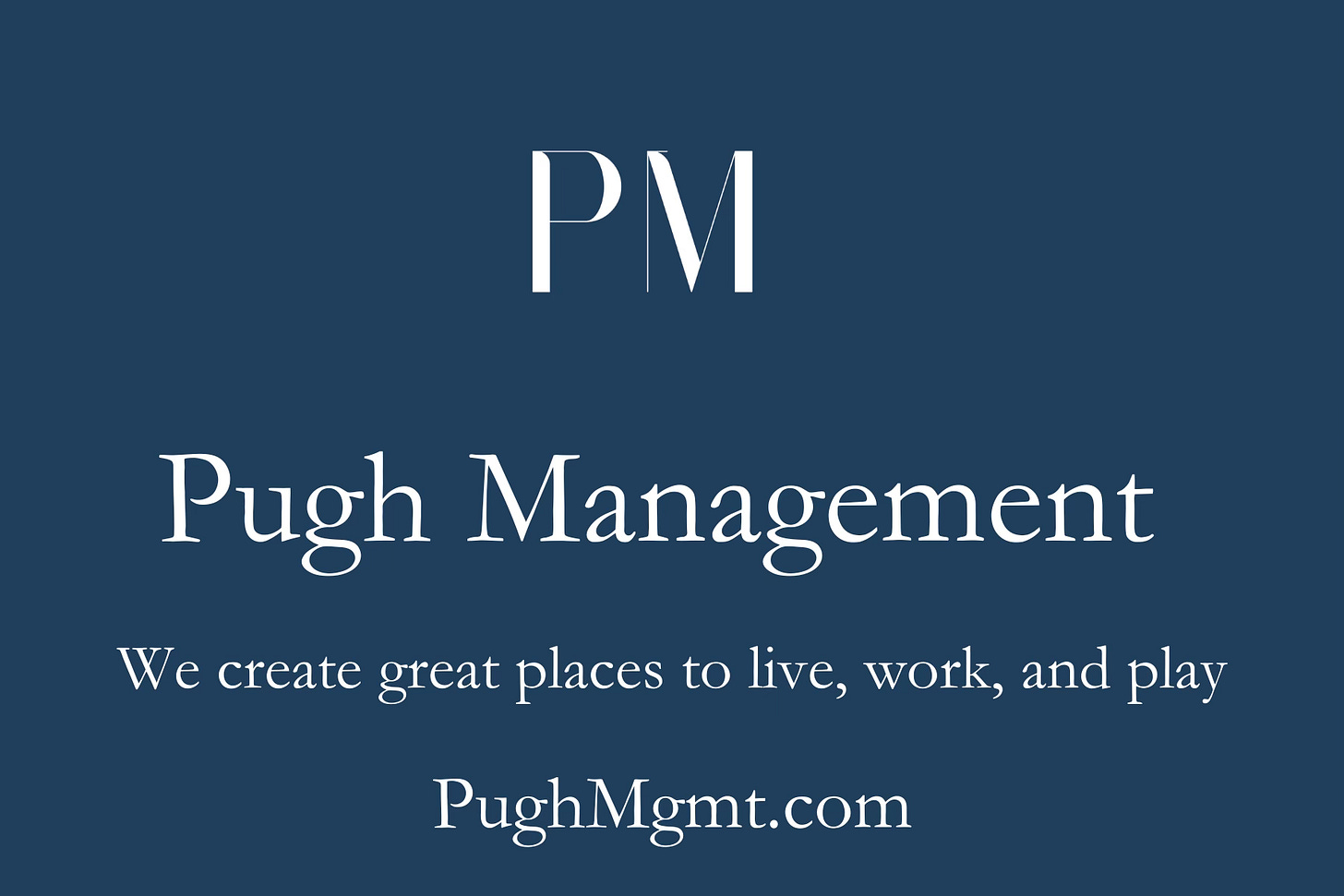How to Build Relationships with Investors (Family Offices, Ultra-High Net Worth)
It's a beautiful thing when priorities align between an operator and investor
Welcome to The LineUp! Our weekly newsletter seeks to add value by engaging, connecting, and inspiring real estate operators and real estate entrepreneurs. If you enjoy what you read, please like, share, and subscribe. Thank you for your support in growing this community!
Are you starting out on a path to be a real estate entrepreneur? If so, this post is for you.
At a recent meeting with a friend, and subscriber, we discussed where he is in his career. He wants to move from managing real estate development projects to having an equity stake in those projects. He is not sure how to make the transition and he needs to build relationships with capital sources. Ultimately our conversation sparked this post since it’s vital to our focus on real estate entrepreneurship.
Why are relationships with investors absolutely key to getting out of the gate? Real estate projects are capital intensive.
There are a limited number of people who will invest with you when you begin on your own. You are an unproven entity. Sure you may have done deals internally at a large well capitalized shop, but where do you come up with the capital to do your own deals? That’s a tough question.
Many times access to capital is what prevents people from going out on their own. Don’t let it stop you.
How to meet investors
Connecting with investors can happen in a variety of ways. Below are three ways to get started so you can capitalize your real estate deals.
Non-Profit Organizations - Yes this is counterintuitive, but that’s why it works. Whatever you do, don’t just join non-profits to find investors. Find something you care about and support that cause.
First a quick story about how my involvement with a non-profit gave me access to people who invest.
I grew up in a middle class family that didn’t have a deep pool of investable capital laying around. I also care about developing high quality buildings, cities, and neighborhoods. It turns out everyone involved in the organization CNU New England feels the same way. So I joined the organization to better support their mission.
A few years into my time with the group I was asked to join the board of directors by the Executive Director. After being on the board, and building a good relationship with the director, I decided to go out on my own to develop property. I mentioned my new entrepreneurial venture to the Executive Director. And, since she is a natural connector, she introduced me to who is now my business partner and major investor. When he and I met we quickly recognized our shared priorities and, after a period of time building trust, a partnership was born.
If you think about what you are passionate about and engage with non-profits in that space, you might just meet someone who thinks like you. You might not, either way you still end up doing work on things that you genuinely care about. The relationships you build with people who share your priorities are the most authentic kind of relationships and that is who you want as an investor.
There are other easier ways to find capital partners. This one happens to be my favorite.
Other Investment Professionals - Another way to meet new investors is through their gatekeepers. All ultra-high net worth individuals and families have a team of financial advisors, accountants, and attorneys. If you know these people well and they know what you do and respect you, they will be happy to connect you with investors.
Again, building trust with gatekeepers takes time but it’s worth it and it’s about more than the money. You have to focus on building deep authentic relationships that are founded on trust and aligned interests.
Capital Markets Intermediaries - Finally, another way to find investors is to use capital markets intermediaries at large (JLL, Newmark, Cushman) or boutique shops.
My partners and I did this for an industrial deal in Boston. We capitalized a deal through the use of the capital markets team at Newmark in Boston.
First we tied up a profitable deal, then began the approvals process. Once we decided we wanted a joint venture partner, we contacted a friend at Newmark Tony Coskren. He brought in his team of professionals and they went to the market and found a partner for us. This allow us to capitalize a $50 million dollar deal that we couldn’t have done ourselves.
They did a great job and we have had the pleasure of building a good relationship with the joint venture partner. We share interests and continue to look at deals together.
How to Build Relationships with Family Offices & Ultra-High Net Worth Individuals (UHNWI)

When you start to look at who to partner with it is important to begin with your network. Talk to everyone and tell them about what you are up to and why your project or idea makes money. That’s the beginning. And if you already have family offices or investors with large balance sheets in your network, then you are all set. If not, you will need to connect with investors/partners who can help you fill out your capital stack.
In this post, for simplicity’s sake I am going to assume you are experienced. Whether it is through experience with large shops or with partners, you can parlay that into an investment by a family office or an ultra-high net worth individual (UHNWI). According to Investopedia those with more than $30 million dollar net worth are categorized as UHNWI. I have worked with both family offices and UHNWI and enjoy it. Because when you work with them it's a personal way to do business.
Its a fact, individuals and families with large balance sheets are looking to connect with experienced operators for new investments.
In the U.S. alone, according to Investopedia, there are more than 240,000 people that are UNHWI. Your ability to connect with these people is only limited by the amount of time you spend developing your experience and relationships in the real estate space. So, allocate that time accordingly or partner with those who already know them and later on build your own relationships.
Most, if not all, wealthy individuals and families have some portion of their money invested in real estate. So maybe you already know them?
Do your priorities align?
These investors are more than just people that give you money to do real estate projects, they are business partners. Don’t imagine they will give you money and go away to let you do what you please with their hard earned money. That’s not going to happen, especially when you’re starting out.
The most important part of figuring out who to work with is to find people whose goals and priorities align with your own. If someone you meet has similar investment interests, you should explore how they overlap with your own to determine whether there is a fit.
Typically this will is a series of informal conversations with the investor to get to know their investment thesis. Or more generally, where do they want to put their money? This might be a particular geographic location or it might be just a particular type of real estate like multifamily. They probably have an opinion and if not, then great you can share yours with them and see if they like your idea.
These conversations should be casual, since you’re just hanging out. Ultimately a partnership will happen if your priorities align. Just don’t rush the process. Like other personal relationships, no one wants to hang out with someone who is too into them.
Give the relationship time and room to grow
Developing good relationships takes time. Don’t expect your relationship to blossom into a full-blown partnership after one or two meetings. Keep in touch, develop your investment thesis, and share information about it with these potential partners.
Also, if you don’t care about something, don’t pretend to. For example, if an investor has an interest in investing in self-storage and you have zero interest. Don’t act like you do. Ultimately you’ll waste your time and theirs and won’t end up where you want to be.
Instead, take your time to learn about each investor’s interests. See where they overlap with your own. This sounds simple, but it isn’t always.
Since I have had some success in the real estate development space I’ve met many investors. So much of these relationships are organic because I don’t push or try to angle too much. Different tactics work, so do what feels natural to you.
But remember, no one wants to be sold. If your idea is a good one, the money to capitalize a deal will become available from an investor.
If there you have shared interests with an investor, continue to explore the commonalities you share with emails, texts, in-person meetings. At each touch point make sure you have something to share that is new or exciting information about the space. This establishes you as a source of good information and allows you to build your credibility.
Finally when a deal comes along, invest your time to determine if the deal is worth putting money into. If it is, then reach out to them with the deal and tell them why you think it might be interesting to work on together.
It all starts with a conversation about a subject you are both excited about.
Working together with gatekeepers
Another important concept to grasp as you build investor relationships is that when working with a family office or UHNWI there is always a gatekeeper. A family office is defined as a “private wealth management firm that serves ultra-high net worth individuals.”
The family office gatekeeper is usually someone with experience in the field of investments, often in the real estate space if they manage real estate investments for a family. So they might be the Chief Investment Officer for the family office, or if it is less formal they might use an outside advisor.
Whoever the investment gatekeeper is, treat this person with the utmost respect. Even if you disagree with them, which at times you will. Over the long term, you must work together as you manage the investment.
So treat this relationship just as you treat the relationship with the investors themselves.
Any deal you get into will involve an operating agreement to define the roles and responsibilities. I’ve had the good fortune to be in joint ventures with family offices. It is not for everyone. To make a deal you will have to get comfortable with their terms and the control they require. For example, when a family office invests a majority of the required capital they typically require the right to approve all “major decisions”. So prepare to get comfortable with that or find another type of investor. These things are negotiable, but ultimately you have to be flexible to make a deal.
To summarize today’s post, building investor relationships takes time and authencity. If you are in the real estate game for the long haul you focus on building a track record and the respect of your peers. This attracts investors and ultimately business partners. That being said, when you’re first starting out take a proactive approach to building relationships with investors. Let’s get out there and start building those new relationships today!
Cheers, John
Thank you for reading The Lineup. Do you have a real estate development topic you'd like to see us cover in an upcoming issue? We'd love the feedback! Let us know at info@pughmgmt.com And don't forget to like, share, and subscribe! We appreciate you!!
Thank you to our sponsors, Pugh Management for your support!









Appreciate the restack @Callie Cox! LMK if you want to connect sometime to discuss all things real estate investments and/or Substack!